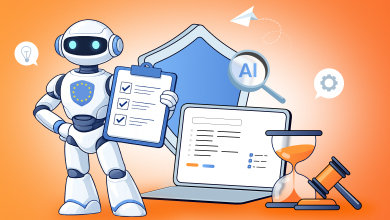
Today, guest services like booking hospitality and travel arrangements, checking flight availability, requesting hotel services and planning excursions are often supported by artificial intelligence (AI), even if it’s not visible to the buyer. For example, among hotels that have implemented AI systems, nearly 70% of guest requests are already handled by AI.
While automation is beneficial for handling simple tasks such as check-ins, emailing receipts, or payments, more complex guest requests have traditionally been handled by humans to maintain a sense of personal interaction. But AI is here to stay, and hospitality brands are exploring ways to leverage the efficiencies of AI while still delivering positive, loyalty-driving customer experiences and striking a balance between productivity and the important human touch.
Trend 1: Personalized Experiences Become the Standard
Personalization, whether human or technology-based, can go a long way in making guests feel respected and welcome in hospitality settings. Recent research conducted by Oracle found that 89% of hotel guests feel that targeted personalization (i.e., sending relevant messages about services and offerings) improves their guest experience.
AI can help quickly hyper-personalize items, such as travel plans in seconds by analyzing data on past stays, spending patterns, and even a guest’s prior search history. AI can provide recommendations on rooms based on guest preferences, potential travel dates based on pricing, curated activity suggestions, and more. Guests report a 33% improvement in response and service times when using AI-enabled technology, showing that the value of efficiency can be a benefit for some interactions.
Shifting some tasks to AI can also help customer service representatives better manage their own time. By starting with an already personalized interaction, agents can then confirm and adjust recommendations rather than starting from scratch. It also allows agents to prioritize personal relationship building and ensure that customers are being treated as individuals instead of a transaction.
Trend 2: Conversational AI Tools Provide Multilingual Offerings
Another growing AI trend impacting hospitality is the implementation of conversational AI and voice assistants. From managing bookings to ordering room service, conversational AI
provides guests with 24/7 support. This reduces friction between hotels and guests by minimizing potential wait times for service and frees up customer service teams to focus on more complex guest requests.
Additionally, conversational AI reduces language barriers, as it can provide customers with support in their preferred language. This capability is significant for global hotels where language differences could potentially be more prevalent. This may lead to misunderstandings in guest requests. From misinterpreting housekeeping instructions to booking a room for the incorrect period, misunderstanding requests can significantly hinder a customer’s experience.
Offering guests customer support in their preferred language has a positive impact on their stay, ensuring an accurate understanding of requests and providing a more personalized experience.
Trend 3: Analyzing Real Time Sentiment Provides Actionable Improvements
Understanding sentiment has become extremely valuable within contact centers. AI and natural language processing (NLP) tools can be used to scan customer service conversations in real time or applied to large volumes of verbal or written call transcripts, feedback, reviews, or surveys. By analyzing conversation data in real time, AI can flag words or phrases that indicate whether a customer is satisfied or unsatisfied with the interaction. The agent can be alerted or even prompted with recommended responses to try and diffuse a negative situation before it escalates.
When looking at large volumes of existing data, AI can help spot trends and patterns in customer behavior and feedback that give hospitality teams an opportunity to adjust.
In action, it can appear as follows: AI flags that an increasing number of comments and complaints have been made on social media, online review sites and in post-stay surveys regarding room service delays and cold food. The tool determines that these guests all ordered similar meals between 6-8 pm on weekends. With this insight, the hotel can adjust the menu to remove meals that might get cold too quickly, adjust staffing to ensure faster food delivery, and reach out to the customers to offer an apology and a discount on a future visit.
The Human Touch Still Matters: Where AI Falls Short
While AI can improve guest experiences through greater personalization and identification of trends indicating areas for improvement, its rapid adoption can cause challenges for companies that fail to effectively integrate it into their processes. AI lacks emotional
intelligence and cannot detect if someone is seeking customer support because they missed a flight on their way to visit a sick family member or if they are seeking an upgrade to celebrate a life milestone – two situations that require very different types of response from a customer service representative. In these situations, guests expect their needs to be addressed by a human rather than a chatbot, so knowing when an agent should step in is crucial.
The Future of Hospitality Must Blend Empathy with AI-Lead Efficiency
It’s imperative for companies in the hospitality industry to maintain a focus on the importance of human interactions to deliver exceptional customer experiences. Combining the efficiencies of thoughtful AI integration in processes where it makes sense with the empathy and personal touch of human interactions is the best approach for embracing AI to improve the customer experience. Hospitality brands must train staff members to work with and alongside AI tools by identifying where it provides the most value, such as handling simple and frequent customer requests.
As AI becomes more widely adopted, brands should continue to assess its effectiveness in improving satisfaction and monitoring data to identify where AI is most effectively applied. Balancing where to leverage AI with the human touch is key to creating an experience that creates happier customers and more efficient, productive agents.



